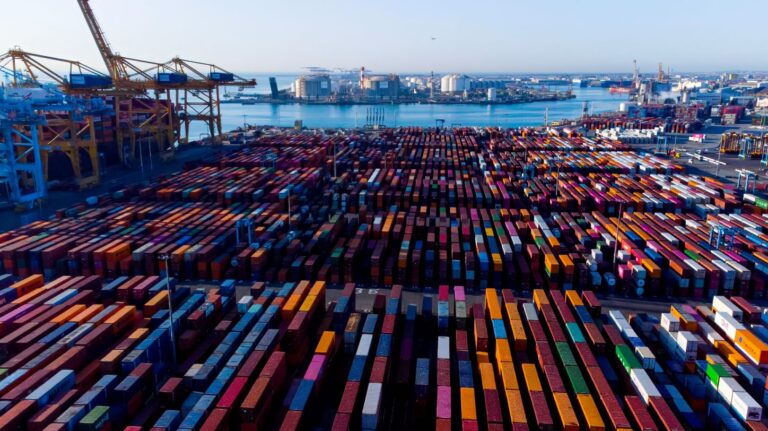As part of a new study conducted by HSBC UK on the impact of international trade disruption, 92 logistics businesses were surveyed, with the results revealing that firms in the logistics sector are ‘disproportionately affected by tariffs’.
75% of the logistics firms surveyed predicted that they are ‘likely to be impacted by changes to tariffs and policies’. This follows uncertainty around tariffs and international trade as a result of the aggressive trade stance taken by the Trump administration since US president Donald Trump’s return to office in January this year.
Since Trump’s so-called ‘Liberation Day’ on 2 April 2025, a trade deal between the UK and the US has been agreed. In recent weeks, the US has also agreed with China to reduce the tit-for-tat tariffs that each imposed on one another over the past months.
The HSBC UK study found that the current state of tariffs and international trade policies have also impacted firms’ investment plans. 28% said they’d delayed investment as a result, while 10% brought forward investment decisions in order to act quickly in the face of tariffs and global upheaval.
A number of logistics firms, the study found, have responded to the potential for supply chain disruption by taking protective measures. Amongst the action firms have reportedly taken are reconfiguring their supply chains to match global demand and changing trade agreements (21%), scaling back services and products (12%), sharing services with other businesses to spread risk (12%), stockpiling products (10%) and considering an exit (10%).
Interestingly, 14% stated that their future plans have been impacted positively by diversifying product services and offerings or expanding into new markets.
Rob Brand, head of business services for freight and logistics at HSBC UK, said: “The recent UK-US trade deal brings a little more certainty to the trading environment across the Atlantic.
“However, it would be wrong to assume this is a panacea for the global upheaval of trading arrangements. With three-quarters of all firms working in logistics feeling the impact of these policy changes, it will take time for things to settle.
“That said, the logistics sector is used to change and is incredibly resilient. Indeed, for many this will be an opportunity to engage with their clients and broaden their relationships, supporting clients to navigate this new, complex landscape.
“It is no coincidence to see firms diversifying their service offerings, tweaking their supply chains and even pivoting into new markets. Freight and haulage businesses have an opportunity to provide higher margin advisory services due to the additional complexity.
“Logistics is gaining prominence in board room discussions for both domestic and international businesses. The sector has a strategic role to play in shaping these debates as a partner.”
Entries for the 29th edition of the Supply Chain Excellence Awards are open now!
There are 30 categories available to enter, spanning a broad range of industries, and highlighting excellence in logistics, supply chains, technology, innovation, people, transport and sustainability.
The Supply Chain Excellence Awards celebrate the hard work, dedication and innovation of those working in the logistics and supply chain sector, recognising excellence in the delivery of efficient, reliable and sustainable logistics.
Click here to learn more about the 2025 awards, and don’t forget to enter before 27 June 2025 – it’s free to enter!







